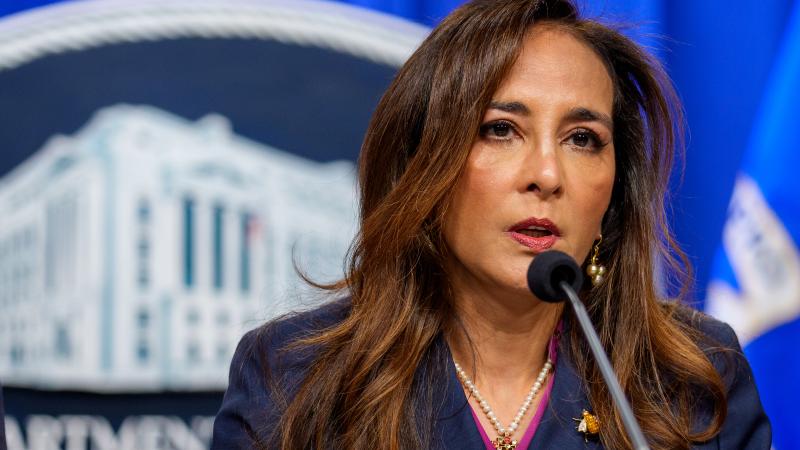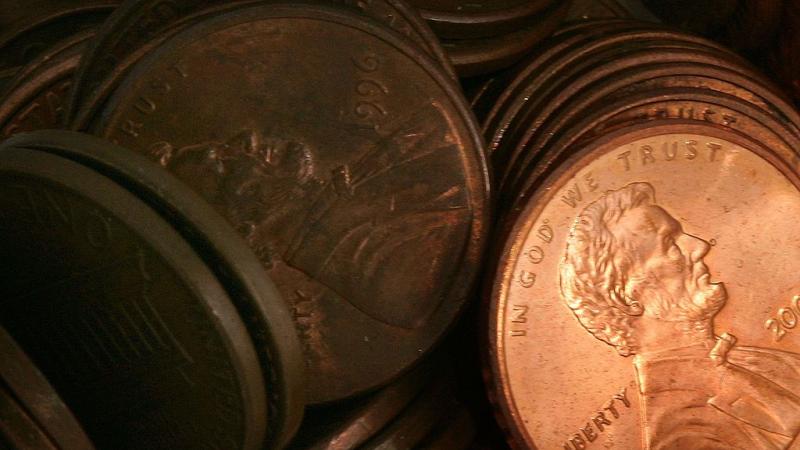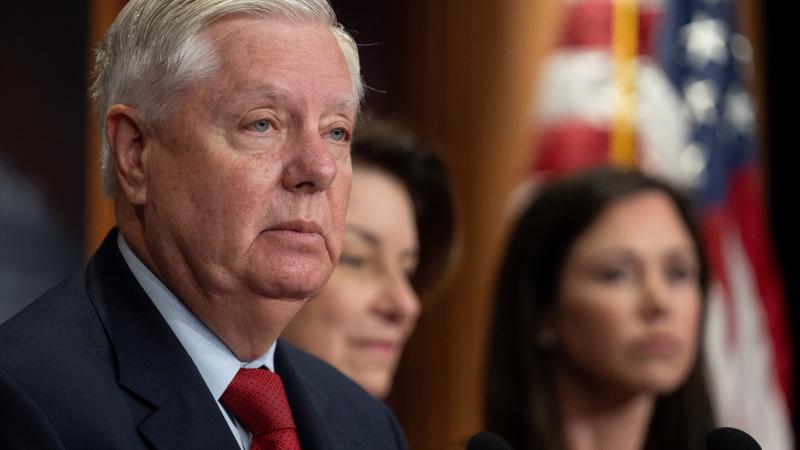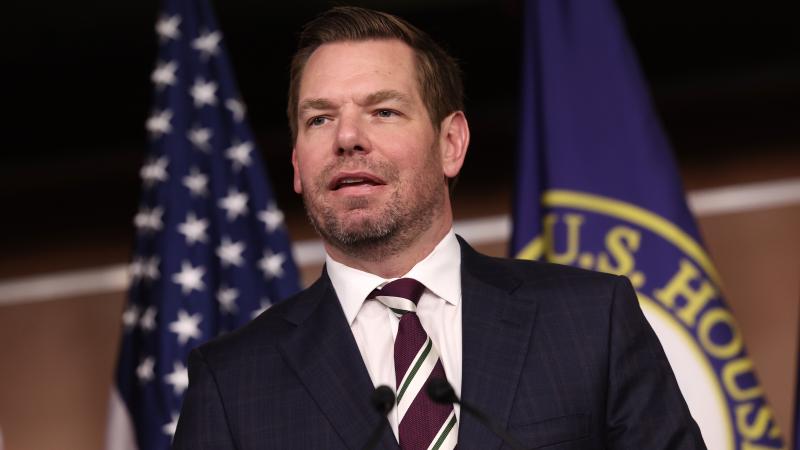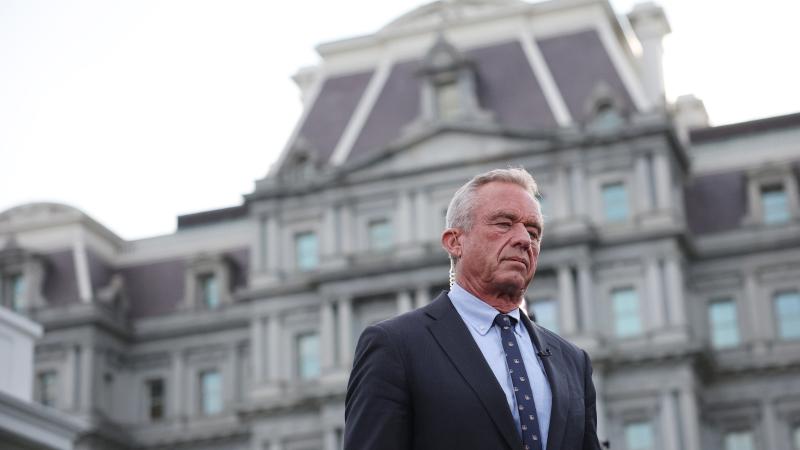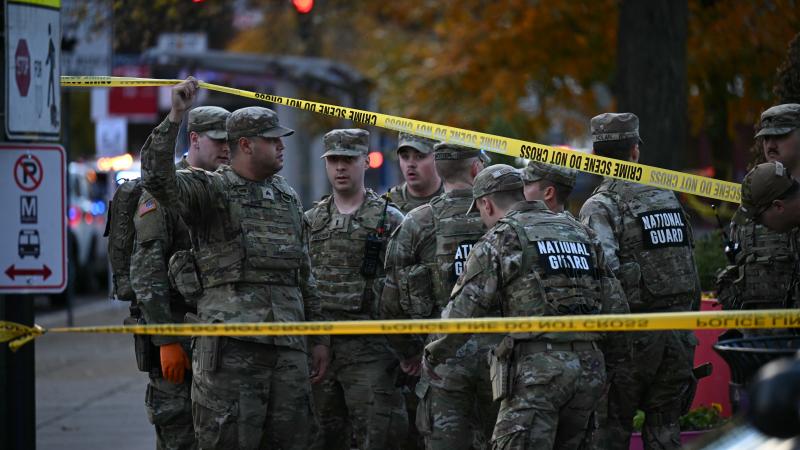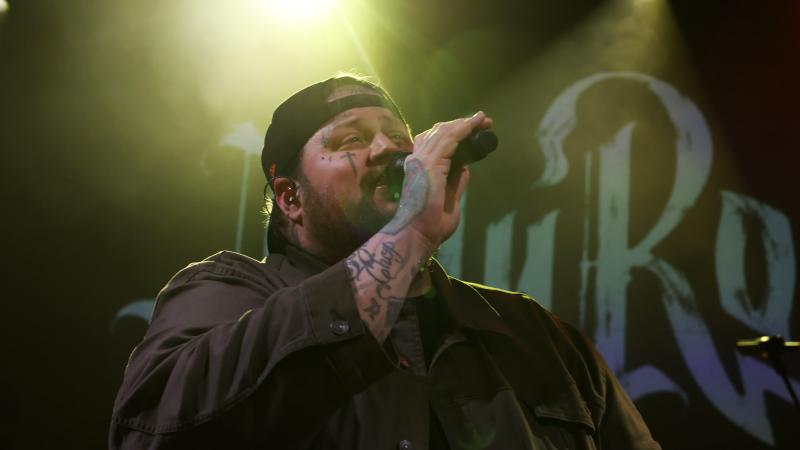Can the evangelicals who ushered Trump in usher him out?

Biden is winning over the faith-based and hoping to play compassion card.
Full transcript;
David Brody 0:07
And welcome everybody to The Pod's Honest Truth with David Brody. Hope all as well, hey, let me just say it's gonna be a hot summer. Okay, we're recording this podcast in late June, and you can just tell that it's just gonna be a sweat fest. And that is not making me happy. Anyhow, not that we're going to talk about that on the podcast today, but I just needed to get that off my chest because it's been frustrating. I'll be honest with you. I don't like the heat. Look, I'm not a New Hampshire minus 17 in January type of guy. But look 87 degrees and 97% humidity, yet not doing the trick for me. All right, time now to discuss Joe Biden, evangelicals and faith outreach. That's right. I didn't say evangelicals and Donald Trump. I said Joe Biden, and evangelicals because folks, can we get a warning sign sound effect, some sort of "woo woo", you know something that's going to thank you. Thank you very much. The warning is up for the Trump campaign. Joe Biden, and his campaign are coming after some of those evangelicals.
David Brody 1:18
Now, granted, they're not going to get the boatload of evangelicals, Donald Trump's gonna get all of those. But the question becomes, can Joe Biden's campaign pick off a percentage or two of Donald Trump's evangelical base? Because if they do, guess what, folks, it's over for Donald Trump, he'll be a one term President. So those evangelicals that ushered him into the presidency could easily Usher him out if one or 2% fall off in 2020. I'm told Joe Biden's campaign telling me that they believe they're going to be able to pull off the surprise this fall and bring in some voters from the evangelical movement and look, Biden's campaign recognizes that, as I said, the majority of white evangelical Protestants are going to vote for Trump, okay, but they believe they have a good chance to win over certain subsets of that group, for example, younger millennial evangelicals, you know, those younger millennial evangelicals are not necessarily believing exactly what their parents are believing they're a lot more moderate. And also, you've got suburban women, suburban evangelical women who may be a bit tired of some of Donald Trump's rhetoric. And that's what some of the polling is showing. So, you know, I think that's really the issue as it relates to what Joe Biden's campaign is going to do. And so they're trying to have this broader set of issues like building a more fair and just society, climate change, racial injustice, immigration, all of that, to hopefully pick off a percentage or two have that crucial evangelical vote and let me explain why it is crucial.
David Brody 2:17
Once again, I don't want to geek out on the numbers okay. But here is some facts for you When it comes to the evangelical vote. Barack Obama won 26% of the White evangelical Protestant vote in 2008. In other words, he won 26% of Donald Trump's base, if you will remember Donald Trump won 81% of White evangelical Protestants. Barack Obama actually won 26% of them in 2008. In 2012, Barack Obama went to 21%. Now along comes Hillary Clinton in 2016. And she wins 16 percent. So you've got Barack Obama 26%. Hillary Clinton is 16%. And there you go, folks. Hillary Clinton doesn't become President, the United States because she decided she didn't want to talk about her Methodist faith. She kind of shied away from it. Barack Obama did not. Barack Obama did talk about his faith. Matter of fact, he sat down with me four times, and he really did engage with that White evangelical Protestant community and it paid dividends. And so along comes Biden and he's going to try to do some have the same and, you know, once again, let's be clear, poll after poll shows that the majority of evangelicals see Donald Trump as someone fighting for their beliefs. But they do have some mixed feelings when it comes to the President's personal conduct. And I think that's where Joe Biden is going to try and play the compassion card and kind of a restore of the soul, the nation card, and hopefully that will be enough to make a difference.
David Brody 4:27
And by the way, not just white evangelicals that are in play as well. The Biden campaign is going to reach out to Latino evangelicals, and of course, Catholics. You know, Biden grew up in a middle class Catholic family. So he's hoping to win back Catholic voters, Donald Trump won Catholic voters in 2016 by seven percentage points in 2016. But this time around, Joe Biden being Catholic campaign believes that White working class Catholic voters in battleground states you know, like Pennsylvania and Michigan, Wisconsin, that they are persuadable and so what we've been seeing, some of my reporting shows that the Biden campaign has been holding virtual house parties with Catholic leaders across the country, basically church is over and then the binding campaign holds these virtual house parties, with the Catholic leaders discussing these broad sets of issues that highlight marginalized folks in society, the vulnerable in society. And, you know, the way the Biden campaign sees it is that that's straight from the Catholic catechism and that they believe they can win some Catholic voters for sure ... voters over for sure. Now, of course, we know when you think of Catholicism, you think of public policy issues, you think of abortion, and of course, we know that Joe Biden is pro choice when it comes to abortion. And that is something that the Catholic Church awfully doesn't approve of. As a matter of fact, during the campaign, Biden was denied communion at a Catholic Church in South Carolina, and the Father, the Catholic Father of the church at the time, Pastor Robert Maury said this any public figure who advocates for abortion places himself or herself outside of church teaching. So the Biden campaign realizes that abortion is going to be a non starter for certain folks in the evangelical and Catholic community. Matter of fact, for the majority of them, but they also hope that Catholics are not single issue voters.
David Brody 6:23
They believe that Catholics are not single issue voters. And you know, that's going to be the case that they're going to make to them. Now, of course, Donald Trump's going to make the case. And he did this in an interview with me this past week, back on Monday of this past week, that Joe Biden is going to basically put radical leftist judges on the Supreme Court and he says you can forget about the pro life movement, cuz it is going to be over and let's be honest, I mean, let's just lay the facts out. Joe Biden is for codifying Roe v. Wade into law. He also says he would get rid of the Hyde Amendment and of course, we know the Hyde Amendment. That law that forbids federal dollars from being used to pay for most abortions. So, look, these are the contours of the race. Once again, we know elections are one at the margins. And so we're talking about one to 2%. I want to go back to those Hillary Clinton, Barack Obama numbers, Hillary Clinton 16% of the White evangelical vote in 2016. Barack Obama 26% of the White evangelical vote in 2008. You can just do the math folks, if Joe Biden can get 17, 18, 19%, somewhere in between the Barack Obama number which was very high, let's be honest, and Hillary Clinton, which was relatively low, Joe Biden just has to do somewhere in the middle, quite frankly, he might even have to be low to middle at this point, maybe 17, 18%, like I said, and that would be the end of Donald Trump's presidency. It's just that simple. So that's why we played the warning sign if you're a Donald Trump fan, you've got to have the warning sign and the warning sound effect all over this podcast because the Biden campaign is going to try and figure out a way to siphon some of those votes off. All right, we're going to discuss this more coming up in the next segment with Michael Wear, Michael Wear he ran the faith outreach for the Obama campaign back in 2012. I've known him for a long time, he's got some great insights. He's next on The Pod's Honest Truth.
David Brody 8:27
And Welcome back, everybody, to The Pod's Honest Truth with David Brody Time now for our interview with Michael Wear. Michael Wear ran Obama's faith outreach campaign back in 2012. He knows evangelicals. He knows Catholics, he knows the faith community. He knows the progressives. He knows everyone. He's kind of a middle of the road guy as it relates to not being one of these far left Democrats who are out there on the social justice progressive scale. But he he understands some of the conservative evangelical concerns. He's got some of them himself. And, you know, I've known Michael for a very long time he really is a sane voice of reason when it comes to talking faith and politics, especially as it relates to campaign so wanted to have him on. So here is his take on what the Biden campaign is and is not doing in 2020. And how they can have a winning hand and have Joe Biden become an ex President of the United States. Here's Michael Wear.
David Brody 9:26
Michael Wear good to see you, sir. It's always great to catch up with you.
Michael Wear 9:29
Yeah. Good to be with you, David.
David Brody 9:31
All right, Democrats and faith and Biden, can you give us kind of a lay of the land kind of an overview, macro sense of what's going on as it relates to Democrats trying to talk to voters of faith in 2020. We have this discussion, you know, every year definitely every four years for sure. Tell me a little bit about what maybe Joe Biden needs to do and what Democrats need to do in this upcoming election cycle.
Michael Wear 9:57
Well, the good thing for the Biden campaign is they're not sort of working from scratch. The former Vice President, someone who's worked with the faith community for a very long time. He's a committed Catholic. He's put a lot of energy into building relationships and working with the faith community. And so really the job of the campaign is to communicate that and to build on that that history. I'm seeing significant work. that they have a robust staff for this point in the campaign. I hope to see them add to it as we get closer to the general but they have tremendous folks on the team who understand the faith community, but but most importantly, the Vice President gets the faith community and you've seen from their advertising from the major remarks he's given, faith in sort of a sensibility related to the faith community, particularly this Catholic background is woven into his remarks. I think it connects with a broad range of people around this country. And and that's going to be important moving forward.
David Brody 11:16
Michael, I want to read you a quote you had said in the past, this is about Democrats and faith, specifically about the candidate, whoever it would be at the time. I don't know if it was Biden the time out to get the the timeline on this. But this is what you said. If the Democratic nominee makes the case, I believe Christians from all backgrounds will play their part to ensure this President is defeated and defeated soundly in November. Of course, what struck me in that quote, Michael, is where you say if the Democrat nominee makes the case, what is the case that Joe Biden needs to make?... I want to say you say to the faith community, so I want to be clear, you know, there's different parts of the faith community, but tell me about what you're what you're saying here.
Michael Wear 12:01
We've talked about 2016. before. And I've been very clear that the invitation was not given in 2016. Broad swaths of the ... we did not feel like the Democratic nominee was interested in their vote. I already think watching this campaign and how the Vice President has acted, his consistency regarding his view that he wants to unify the country, his consistency regarding the fact that he doesn't think that we should be looking to divide Americans. And the fact that he's spoken to people of faith, whether you look at his Holy Week messages, or whether you look at the way that faith is included on his website. He's offered the invitation so part of making the case means just making your best case explicitly to faith voters. There's room to grow there. I think that's gonna have to expand. But for this point in the campaign, I think he's doing what he needs to do to let people from different faith communities, let moderate and conservative Christian voters know that they can vote for him and they'll have a partner, they'll have someone that they could they could work with. They certainly won't agree all the time. I think he's sending the message. Look, I'm someone who wants to be President for the whole country. And that's, that's, that's very important. And then the other piece of the statement is, look, I mean, the President Trump has his base, and he's going to have most of that base vote for him in November. The question is for so much of the rest of the country, President Trump seems unable to reach out to everyone but his most diehard supporters in a consistent way. Maybe that changes in the next five months. But I think you and I both agree this President doesn't change too often. So the question is does the former Vice President, is he able to take advantage of the fact that this President is toxic to a broad, really a majority of this country? It depends who turns out to the polls in November and whether Vice President Biden makes himself an attractive acceptable home for folks is going to help determine how that turns out.
David Brody 14:46
Well, Michael, you mentioned the evangelical vote, if you will, that Trump base that we know about this 81% figure of White evangelicals, I call it White evangelicals, because that's how CNN does our exit polling and they say White evangelicals. I just want to be clear on that. But beyond that, I'm not a mathematician. But that to me, let me think 100 minus 81% means about 19% of White evangelicals did not vote for this President. We know 16% went to Hillary Clinton. So it seems to me that elections are won at the margins here, Michael and if Joe Biden can pick off a percentage or two of those White evangelicals who are not on board with Trump, especially in swing states like North Carolina, Florida, Wisconsin, Pennsylvania and go on. That could that could be a huge game changer. Is that your estimation as well?
Michael Wear 15:34
Yes. And I think he's on track to do that. I mean, as you know, I've known you for a long time, David, as you know, in 2008, Barack Obama won 26% of White evangelicals, and in 2012, obviously, with former Vice President Biden on the ticket, he won 21% that, as you said,ba5% jump ... if former Vice President Biden is on track for that those 2012 numbers, he will win by a significant margin. If he is approaching 26% with White evangelicals that the Obama 2008 numbers, I feel confident saying he'll have over 320 electoral votes, it will be a significant victory. And I'd say the same for Catholics. You know, the Obama Biden Ticket One, the Catholic vote in 2008 and 2012, after John Kerry lost in 2004. And according to the initial exit polls, at least, Hillary Clinton lost the Catholic vote in 2016. I think I'd right now is on track to to win back the Catholic vote.
David Brody 16:50
Now you say all of that, and I agree with you wholeheartedly on all of that. So my question then becomes, you mentioned earlier, he Biden, or the campaign has room to grow Were your words. What does that mean? Exactly what needs to happen between now and Election Day in that space of room to grow? You mentioned that he was doing a pretty good job so far. But what's the space in between Michael?
Michael Wear 17:15
Yeah. So his staff needs to continue to grow his state operations in these battleground states need to be sensitive to religious voters, they need to have the capacity and desire to, to reach out to religious voters and in a way that is relevant to them. He needs to continue speaking to religious voters, I expect to see at least one or two sort of major moments where he's speaking directly to the faith community, just like there are events for speaking to other groups. And so those will be key moments. And then you know, he's gonna, he has opportunity to lay out a policy agenda that's relevant And this is a policy agenda, in my mind that both is very positive about areas where he agrees with a lot of the faith community, whether it's on the environment, and that's already on his website, whether it's poverty, whether it's issues like the Trump administration's child separation policy at the border. And then it's also giving some sense on issues where maybe there are some disagreements, that this will not be an antagonistic administration. And for folks who have watched Biden's career, this is not someone who has been going around looking to antagonize. This is someone who loves bringing people together. This campaign needs to let Biden be Biden in that regard, and I think they'll be fine.
David Brody 18:54
How does he navigate the abortion issue... Catholicism and abortion. I don't want to say go hand in but obviously there has been, and we know about that relationship within the Catholic Church and abortion. How does he navigate that Michael?
Michael Wear 19:07
Yeah, well is obviously was an interesting primary. I think it's I think it's noteworthy, David, that there were candidates who were trying to take the party further to the left on this issue, that we're using all kinds of, in my view, you know, ridiculous language. They lost who emerged out of the Democratic primary for all the rhetoric that's going to come from the religious right, you know, as this general heats up, who came out of the primary, someone who's voted for abortion restrictions, and certainly someone former Vice President Biden, who doesn't think abortion is something to celebrate. He's been consistent on this issue that that he believes ... He supports Roe v. Wade. So voters who their only sort of issue is getting rid of Roe probably aren't going to vote for Vice President Biden, who he's going to be able to attract are people who perhaps think abortion is an important issue want to see the number of abortions reduced in this country? Maybe even they do support getting rid of Roe, but they look at the sort of the array of issues on this ballot. They look at President Trump's record. They look at former Vice President Biden's record and decide, you know what, I feel safer, I feel more secure. I feel like it's for the common good. Overall, former Vice President Biden is the candidate.
David Brody 20:47
You know, real quick, it reminds me that this opportunity for Biden here to kind of appeal to the better angels like Barack Obama did in 2008. It kind of reminds me, you know, back in the day, Barack Obama in 2008 was coming off George W Bush and Dick Cheney and waterboarding the Iraq war there was a lot of stuff going on. I wouldn't you know, he was kind of positioned himself as kind of a law and order, President Trump doing it a far more clearly, but George W. Bush had that streak in him as well. And along came Barack Obama with hope and change and, and that better angels approach. I wonder if Joe Biden can't capitalize or can capitalize, I should say on that same philosophy, this compassion, this restoring the soul of the nation, it seems to me like a real opportunity to get some of those Catholics have voted for Trump and swing states and also some of the evangelicals.
Michael Wear 21:37
Well, you know, this is a moment where it looks like this election is going to be about the very reasons why former Vice President Biden got into this race in the first place. Which is, in a way how it should be, you know, He got in this race, it seems pretty clear, in large part because he was shocked and disappointed in the President's response in Charlottesville. We're now in another moment in this country, we're divided. And there is a lot of disagreement and politicization around issues of race, but also around issues of class around the basic functioning of our politics. And in November, we're going to get to have a debate like, like the American people are going to get to choose. Do we think this constant conflict driven not just in presidential speeches, but in presidential tweets... is that the kind of political culture we want to hand down to our children? Is that how government should function or is there a better way? Is perhaps Vice President Biden's history of bringing together bipartisan coalitions, of trying to find common ground ways on divisive policy issues, even if he hasn't always gotten it right, he's moved the ball forward. That's gonna be that's gonna be the the debate and it, you know, at the end of the day the American people get to choose and that choice is going to be a reflection, yes on the candidates, yes on President Trump and former Vice President Biden, but it's also going to be a reflection on us.
David Brody 23:30
I want to ask you one last question. You've talked before, you've been very outspoken about this, I'm sure taking some hits about this about, you know, challenging the Democratic Party on the issue. Look, you you haven't called in this at all, but critics have said that the Democratic Party's that they want to call the Democrats a godless party. I know you haven't said that. But you've heard the criticism. So what's the what's the rebuttal to that? How do you how do you navigate those waters when the Democratic Party has this reputation like it or not, that they're going away from traditional, if not traditional Judeo Christian values, this idea that, you know, they're not really engaging as much on faith talk.
Michael Wear 24:12
Yeah. Well, David, as you know, I'm chief strategist at an organization called the Ad Campaign. And we have a book coming out in July called Compassion and Conviction and Campaigns Faithful Guide to Civic Engagement. And in that book, we discuss the role of political parties in the life and perspective of a Christian. And the basic message here, David is you do not become a Democrat or Republican for that party to influence you. You become a Democrat or Republican to influence that party. That's what our parties are for our parties are our brands, our parties, our identities, their vehicles for sort of mediating how voters feel and so that means means that I can have even worked for Democrats in the past. As a Christian, I look in there things that concern me about Democrats that there are, you know, we discussed at one point, you know, they passed a resolution thats seems to suggest that a non religious folks might have a better grasp of reality in science than others. I think that Jesus who holds the world together in his hands has a pretty good grasp on science. So like we'll have those debates, of course at the base of the Democratic Party, are the most religious by many traditional measures, church attendance, high view of the Bible, that the base of the party are Black Protestants. And so, the Democratic Party is an interesting tension point where we have a significant portion of the party, a minority, by the way, but a significant portion of the party that's religiously unaffiliated, and that includes atheists. It also includes people who, who believe in God, but don't ascribe to a particular faith. But then we also have a majority that are Christian. Again, a very robust Hispanic Catholics, evangelicals, Black Protestants, minority faiths now overwhelmingly are a Democrat, that wasn't always the case. So we have we have a party. That's what we have. We'll have disagreements, we'll sort it out. And hopefully we have a leader and I think we do this time around in former Vice President Biden, who see who sees the whole party.
David Brody 26:59
Let me ask you, just the last question before we wrap up, I've always been kind of enamored of interest in this idea that evangelicals that are voting for Trump are voting in the macro. In other words, they understand. Look, this is not Boy Scout and Chief, he is not a moral crusader, they get that they understand he's Donald Trump, right? And they're willing to pass over all of that. And the reason is, because they'll vote in the macro, because he's with them on those issues. And so I think, and there's a lot more to it, but here's the point. Here's the point. What do you do with a candidate or a President, in this case, who may not be the most moral guy in the world in terms of the stellar record, but champions your issues, and then you have someone like Joe Biden, who, you know, upstanding kind of moral guy the whole thing, but doesn't comport with the issues that are important to traditional evangelicals. So evangelical, see, it is like look, I'm gonna vote on the issues and the issue of Trump aligns more with my issues, even though I might not align with Trump and his Twitter feed every day.
Michael Wear 28:09
Well, I'd say a few things, David. First and for traditional evangelicals, your issue set should not be drawn from how your parents voted... go to Scripture And if you think the only political issues that are invoked in Scripture are just a couple of social issues, adjust abortion and LGBT issues, then I just don't think you're reading closely enough. So generously, I just want to have a broader issue set. If you're going to apply your faith to your politics, apply the whole thing, not just sort of what you're used to voting for. The second thing I'd say is morality is a competence issue and competence is a morality issue. President Trump, even on those issues you were referring David, but President Trump is not competent enough. He's not committed enough to protect evangelicals' interests on those issues. We saw that just this week, this whole thing was supposed to be about getting the quote unquote, right justices on the Supreme Court. And the biggest threat in issue I've worked on David, as you know, for years is protecting the religious freedom of institutions. When it comes to the advancement of LGBT rights, and it was Trump's nominee who writes the opinion that every religious right organization for decades, David, said if this happens, it's the end of religious freedom. I don't happen to believe that. But let's just go on what your own advocates have said for you. And so even on these issues, Brett Kavanaugh, Trump's other nominee denied ... so that the Supreme Court want to hear a case on defunding Planned Parenthood. So even on these issues where Trump says, I'm looking out for you, I'm going to defend you. Let's remember, maybe there are some good sides of him not being a politician. But one bad thing about him not being a politician, is he really doesn't know how politics work. He really doesn't know how policy works. And so that's not the kind of person who's going to really be able to it moves the ball forward on some of these critical priorities.
David Brody 30:38
Well, I would say just, just to push back a little bit on courses, for sure came. I mean, a lot of folks were like, what in the world? I get that part of it, but, you know, I think I'm balanced. My guess is course it will probably be there. Most of you know 75 80%. I don't know if he's a suitor, if you will. We'll see. We'll see about that. I don't know.
Michael Wear 30:58
Yeah, David. We'll see. I guess. What I What I'm saying is everything else has been hand waved away. His flippancy with basic norms of how government should work, the way he talks about people in this country, things like the child separation policy, all kinds of things have been hand waved away with. Yeah, maybe those things matter, but they don't matter to me as much as religious freedom. And so if you're going to hang that much on these on these ... I don't think 80% is good enough. It shouldn't be good enough for the for the voters who feel like they're holding their nose when they have to vote for Trump. And the final thing I'll say, David, is I just think this is a fundamentally different setup than we had in 2016. I think voters will be by November will be able to look at former Vice President Biden and say, look, I don't agree with the guy on everything, but this is someone I'm going to be able to work with. This is someone who understands where I'm coming from, even if he doesn't agree with me all the time. And I think that's going to be important to a lot of orders.
David Brody 32:10
Michael Wear I could talk to you all day. I appreciate it, sir. Thank you so much. Really. Thank you.
Michael Wear 32:15
Thanks, David.
David Brody 32:20
That is Michael Wear here on The Pod's Honest Truth. some final thoughts now for you on this episode. You know, this whole Biden Trump evangelical storyline reminds me of what was happening back in 2007. Remember back then Barack Obama comes on the scene and talks about hope and change your better angels compassion, love your neighbor as yourself all of that. Well, let's remember the context as well. It comes out of those Bush years which included the Iraq war and waterboarding and George W. Bush's tough Texas machismo swagger, if you will. Don't forget Dick Cheney. And his tough as nails VP persona. And now fast forward to 2020. Along comes Joe Biden preaching unity, compassion, Kumbaya holding hands walking together, kind of like the Obama message back when he won the presidency. And of course, Donald Trump is in the George W. Bush role only, of course, 10 times more swagger and law and order. It sets up as a dangerous zone for President Trump and his reelection chances and a real opportunity for Joe Biden to become the next president of the United States. And that's The Pod's Honest Truth. Until next time, America


